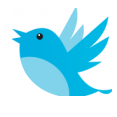Twitter has changed a lot of things in healthcare. One of them is communication at medical meetings.
Twitter has changed a lot of things in healthcare. One of them is communication at medical meetings.
Volume of #ASCO13 tweets from 6pm-9pm, May 15, 2013 (Source: The Healthcare Hashtag Project, Symplur)
Yesterday, the embargo of abstracts to be presented at this year’s American Society of Clinic Oncology (ASCO) Congress was lifted at 6pm, creating a big wave of conversations on Twitter.
Oncology is one of the most active and exciting therapeutic areas for drug development. According to a report from the industry organization PhRMA, there are more than 3,000 projects in development for cancer treatment and 80 percent of them are potential first-in-class medicines. This explains the high anticipation of ASCO on Twitter.
Thanks to Healthcare Hashtags Project, an amazing tool developed by Symplur and contributed by a wide range of partners in the healthcare space, we are able to pull and visualize the ASCO tweets.
Following are some key Twitter metrics about #ASCO13 from 6pm-9pm yesterday I pulled from the website:
- 260+ tweets were issued
- More than 120 users issued tweets
- The tweets potentially reached more than 2.5 million users
From a healthcare perspective, these numbers are impressive–this is a strictly regulated industry and it takes tremendous efforts for stakeholders such as pharmaceutical companies and device manufactures to develop informative and fair-balanced content that fits 140 characters.
When we look at these numbers more closely, we have some more interesting findings:
- Adam Feuerstein, reporter from The Street issued the most tweets (11) and was also mentioned the most (26 times) on Twitter
- Seven pharma companies issued tweets during the time period
- Gilead issued the most tweets (3 tweets); Genentech was mentioned the most (15 times)
- Although BMS only issued one tweet, the company was mentioned six times on Twitter because of its promising data on its PD-1 compound, which has generated significant coverage in the traditional media space
- A majority of tweets included comments or point of view rather than just news sharing
These findings give us three important insights. First, organizations can capitalize on news trend to strengthen message penetration online. Second, Twitter can significantly augment the influence of individual users. Third, opinions expressed on Twitter may have larger implications for marketing and communication strategy development.
What’s happening around ASCO on Twitter have also appeared during other major medical meetings. While attendees participate in events taking place on site , another gathering is taking place on Twitter simultaneously, with a much larger and diverse audience, creating a “social soundtrack” for the meeting.
Now, many medical meetings introduce official Twitter hashtags to facilitate such conversations online. A list put together by Symplur shows from May 10 to May 21, 35 medical or healthcare-related conferences have listed official hashtags.
A major implication of the trend is that data presented at a medical meeting become instantly accessible by the general public. Twitter users–from multinational corporations, large hospitals to researchers from academia have the same opportunity to share their point of view to a wide audience. Those who understand how to develop engaging, relevant and informative digital content have great advantage to lead the charge in online conversation and deliver key messages to a large audience. Take yesterday’s ASCO embargo lifting as an example, the most active participants were reporters, pharma companies, media outlets and oncologists–all came with key messages in mind. For those who made it on top of the list, they succeeded. Just browsing through #ASCO13 tweets from yesterday, you already have a pretty clear idea of what data people would be talking about the most in Chicago two weeks from now, even if you know nothing about oncology R&D.
One of the most exciting changes that social media has brought to healthcare and medicine is that the emerging tool breaks the barrier for information that was only available to highly trained medical professionals. Now, by including a hashtag, anyone can be a participants of a medical meeting. You can argue whether it is a good idea or not but one thing is clear: traditional players in healthcare can no longer talk to each other in a vacuum. As the digital movement evolves, the audience of medical meetings is changing and we may soon forget days when there wasn’t a hashtag for the meeting.
image: twitter/shutterstock

